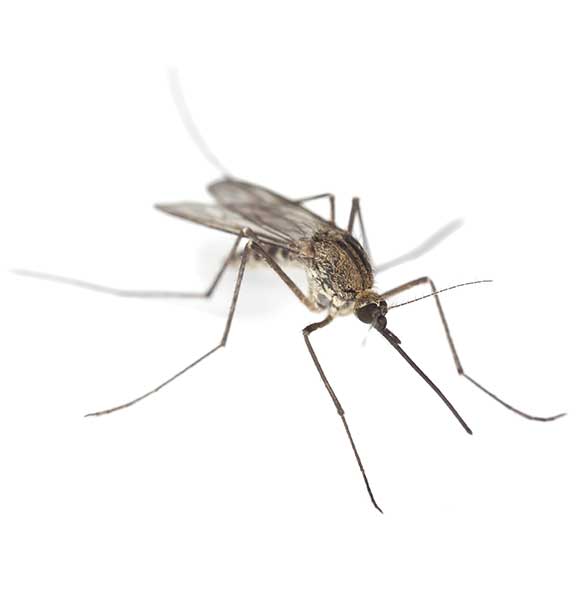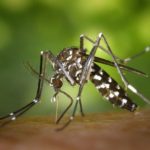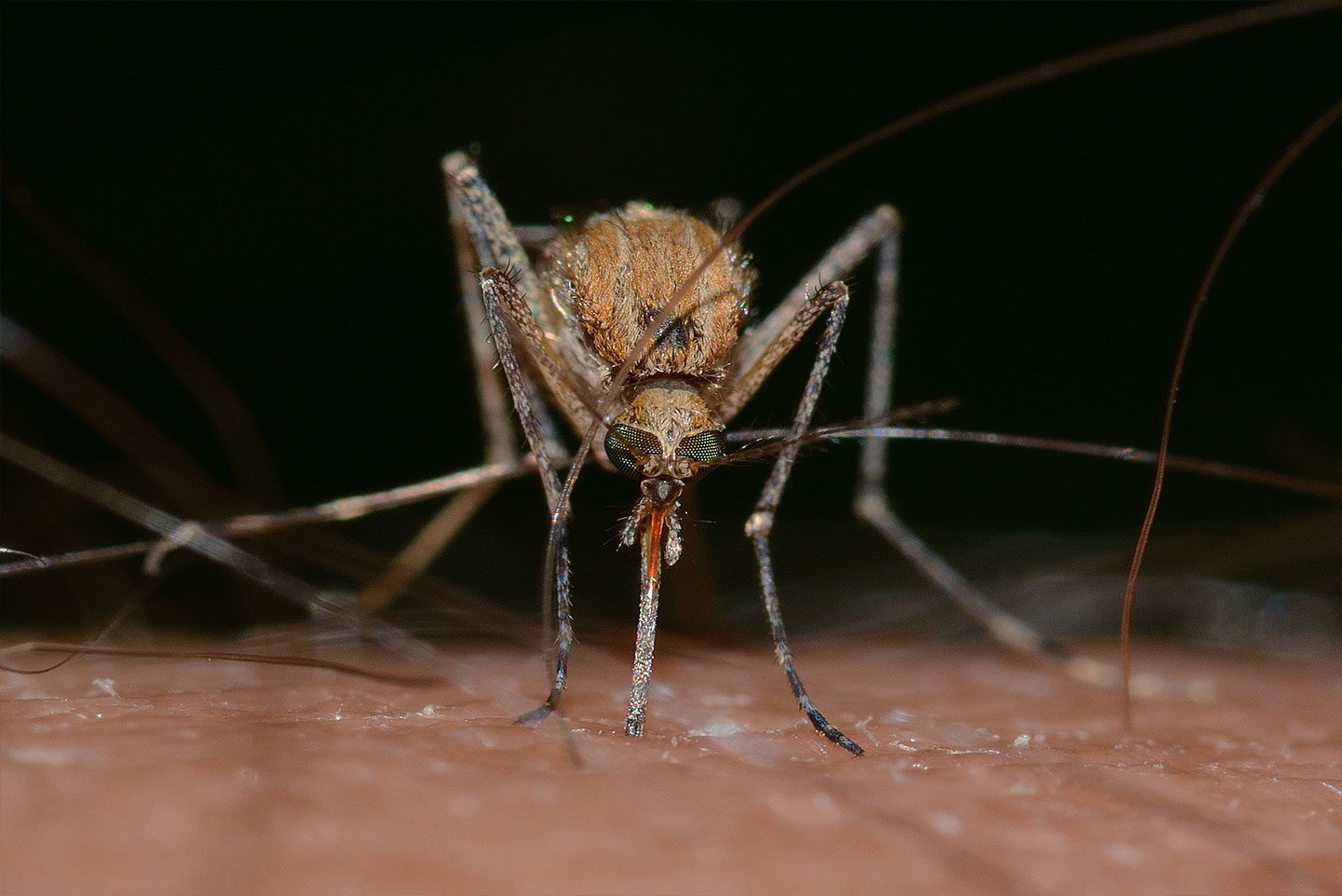(Diptera Culicidae)
Description
Mosquitoes are flying creatures that are considered to be true flies. They have three pairs of long, thin legs and a pair of wings. They also have antennas and a thin mouthpart called a proboscis. A mosquito’s entire body is covered in scales. Mosquitoes are very small and under 1 cm, or 0.39 inches long.
The abdomen of a mosquito is specialized for food digestion and egg development. It can hold three times its own weight in blood.
There are more than 2,500 species of mosquitoes, and more than 200 species in the United States.

Read or Download Our Mosquito Brochure
This comprehensive brochure covers all you need to know about mosquitoes, steps you can take in your own yard, and how Stride Pest Control treats this ever evasive insect. DOWNLOAD HERE

Additional Information
Habits & Behavior

Some mosquitoes like living near people, while others prefer forests and tall grasses. Mosquitoes are most active at dusk and dawn. This is when they feed. They are attracted to even the smallest amounts of water. They breed in stagnant, standing water sources such as ponds, old tires, children’s wading pools, buckets, flower pots, rain gutters, storm drains, and birdbaths.
During the day, mosquitoes tend to hide in dark and cool corners. The indoor resting places are usually the dark corners of houses, upper part of the walls, and under furniture. Outdoors, mosquitoes will rest in places such as vegetation, shrubs, tree holes, wells, and sheds.
Mosquitoes will suck the blood of any human, but they do prefer humans with certain characteristics. They include those who exude large amounts of carbon dioxide such as: those with type O blood, heavy breathers, an abundance of skin bacteria, high body heat, and pregnant women.
If you want to avoid becoming a meal for a mosquito, watch what you eat. Mosquitoes are also attracted to people who drink beer and eat bananas, avocados, salty foods, and sugary foods.
Mosquitoes do not live a long time. The lifespan of a mosquito can vary, depending on species, sex, and weather conditions. Potential adult lifespans range from as short as a week to as long as several months. Males typically live for about 5 to 7 days. They do not suck blood; instead, they feed on nectar and other sources of sugar.
Food
What a mosquito eats depends on their sex and life stage. Female mosquitoes must take blood meals, as they are essential for mosquito reproduction and survival. Blood allows mosquitoes to get the protein and iron they need to produce eggs that will properly hatch. Mosquitoes will feed on various hosts besides humans.
Male mosquitoes primarily eat nectar. Nectar is the main food source for both male and female mosquitoes, so they are plant pollinators. Mosquitoes will eat juices from flowers and fruits, plant sap, and honeydew. These sugary foods give mosquitoes the energy they need to fly and sustain themselves.
Mosquito larvae do not eat nectar though and will instead consume algae, bacteria, and other microorganisms present in the water. Once they are in the pupal stage, mosquitoes don’t need to eat at all.
Reproduction
The mosquito life cycle consists of egg, larva, pupa, and adult stages. The first three stages — egg, larva, and pupa — are largely in water. Each stage typically lasts 5 to 14 days, depending on the temperature. Mosquitoes living in regions where some seasons are freezing or waterless may spend part of the year in diapause. This allows them to delay their development for many months and carry on with life only when there is enough water or warmth.
Eggs are laid on the water surface; they hatch into larvae that feed on aquatic algae and organic material.
The adult females of most mosquito species have mouthparts called a proboscis that can pierce a person’s skin and feed on their blood. This blood contains protein and iron needed to produce eggs. But they don’t just drink human blood. Mosquitoes will also feed on the blood of various mammals, birds, reptiles, amphibians, and fish.
Dangers
Mosquitoes are small but deadly. The diseases that mosquitoes spread have been responsible for killing more people than all the wars in history. In addition, it is estimated that nearly half of all humans that have ever lived were killed by mosquitoes. Mosquitoes transmit malaria and kill 2 million to 3 million people every year. They also infect another 200 million people every year. Tens of millions more become ill or die from other mosquito-borne diseases, including yellow fever, West Nile virus, Zika virus, chikungunya, dengue, and encephalitis.
Children are often victims. Mosquitoes can spread Japanese encephalitis, which kills about 10,000 people a year, mostly children under the age of 5.
These mosquito-borne diseases can cause severe pain, headaches, diarrhea, vomiting, rashes, and other serious symptoms. In some cases, a person can suffer permanent disability.
Mosquitoes can be dangerous to people of all ages. The best way to protect your family is to eradicate mosquitoes and their breeding grounds. They can survive and breed in just the smallest bit of water. Once you have mosquitoes, they can be hard to get rid of.
Contact Us Today
Mosquitoes are annoying creatures that buzz, bite, and carry diseases. These small pests can create a lot of havoc, ruining outdoor parties and barbecues.
Stride Pest Control can help you keep your home and yard pest-free. We are highly rated and have many satisfied customers. To schedule a free consultation, give us a call at (512) 777-1339 (Austin) or (210) 547-8410 (San Antonio) or fill out the online form.
Young produced by females every 2-3 days
30-150
DEATHS ATTRIBUTED TO MOSQUITOES EVERY YEAR
1MM
Number of mosquito species
3,500
Female life expectancy in days
42-56
Get a FREE Consultation



